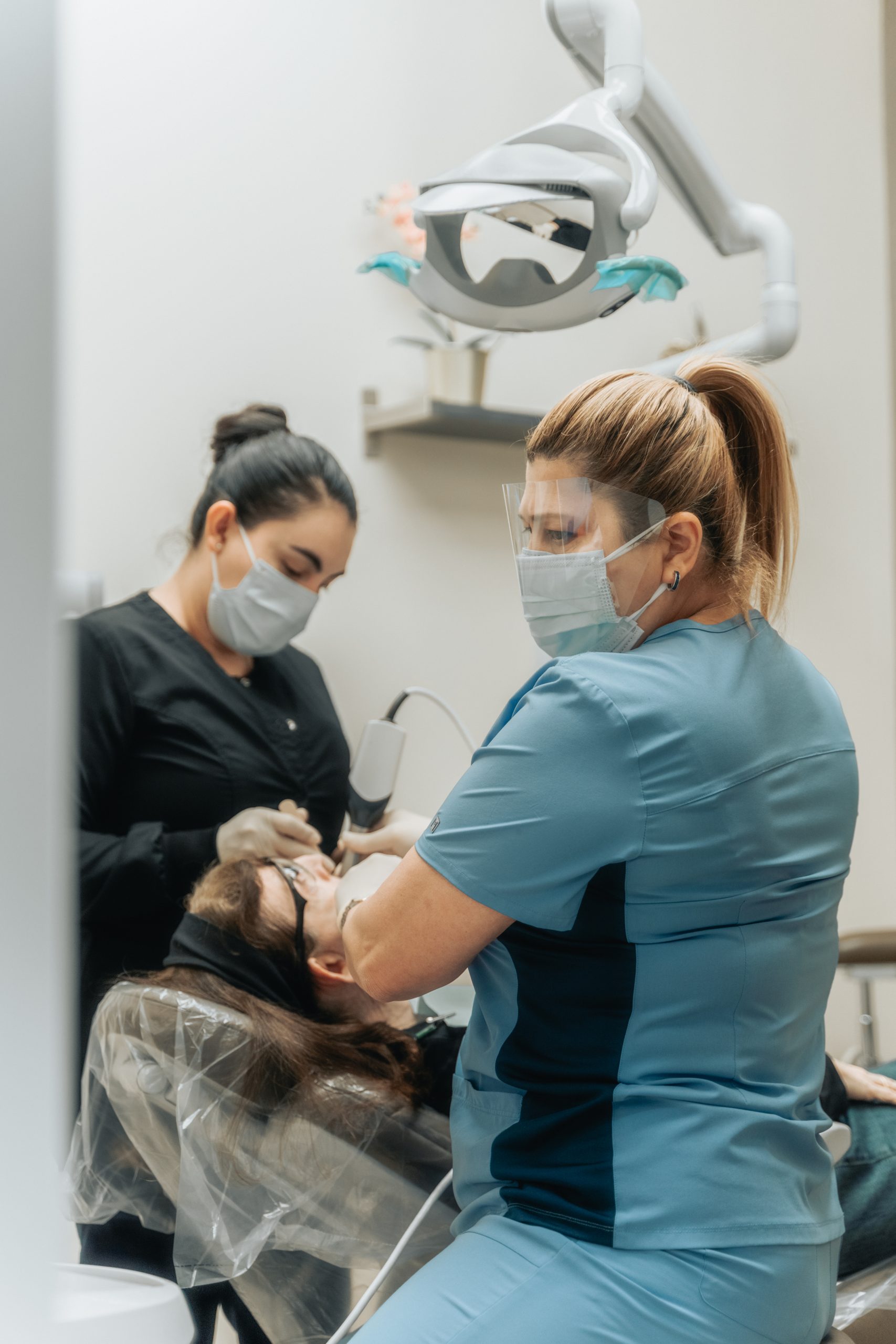Your Overview to Choosing the Right Dentist Eugene OR for Top Quality Service
Your Overview to Choosing the Right Dentist Eugene OR for Top Quality Service
Blog Article
Learn More About Regular Oral Issues Your Dental Professional Can Fix
Understanding frequent dental worries is essential for maintaining ideal oral health and wellness. Problems such as cavities, gum tissue illness, tooth level of sensitivity, poor breath, and tooth decay are common yet usually neglected until they come to be severe. Normal dental sees and personalized treatment plans can attend to these problems effectively, guaranteeing a much healthier and brighter smile.
Cavities
Cavities, likewise called tooth decays, are a widespread dental health problem triggered by the demineralization of tooth enamel as a result of acid manufacturing from microbial plaque. This process begins when microorganisms in the mouth metabolize sugars and starches from food, generating acids that erode the enamel. Otherwise resolved without delay, this disintegration can permeate deeper into the tooth, impacting the dentin and eventually the pulp, potentially bring about extreme discomfort and infection.
The onset of tooth cavity development commonly present as white areas on the tooth surface area, showing first demineralization. As the procedure advances, these areas can become brownish or black lesions, representing much more considerable decay. Normal dental examinations are important for early discovery, as tooth cavities in their nascent phases can be treated with remineralization techniques, such as fluoride treatments.
As soon as a cavity has actually formed, corrective treatment is necessary. Dental professionals commonly get rid of the corroded part of the tooth and load the tooth cavity with products such as composite resin, amalgam, or ceramic. In extra extreme instances, a crown or origin canal treatment might be needed. Preventative measures, including excellent oral hygiene techniques and dietary modifications, play a pivotal role in minimizing the danger of dental caries.
Gum Tissue Condition
While dental caries represent a significant issue for dental health, another essential issue that requires focus is periodontal condition. Additionally referred to as gum condition, periodontal disease is an inflammatory condition impacting the tissues bordering and sustaining the teeth. It is largely brought on by the accumulation of plaque-- a sticky film of germs that bases on teeth.
Periodontal disease advances through stages, beginning with gingivitis, characterized by soreness, swelling, and hemorrhaging gums (dentist in eugene oregon). If left neglected, gingivitis can escalate to periodontitis, where the inner layer of the gum tissue and bone draw away from the teeth, forming pockets that end up being contaminated. Gradually, the toxins produced by the germs damage down the bone and connective tissue that hold teeth in position, possibly resulting in tooth loss
Very early detection and treatment are important. Specialist oral cleanings and improved oral hygiene techniques, such as cleaning twice everyday and flossing, can handle gingivitis. For more advanced stages, therapies may include scaling and origin planing, prescription antibiotics, or even medical treatments.
Normal oral examinations play a crucial function in managing and avoiding periodontal condition. Dental experts can identify early signs and suggest proper treatments, guaranteeing the upkeep of healthy gum tissues and general oral health.
Tooth Sensitivity
Tooth level of sensitivity affects numerous individuals worldwide, offering a common yet usually traumatic dental concern. This problem occurs when the enamel, the outer safety layer of the teeth, is endangered, disclosing the underlying dentin. The dentin contains tiny tubules that lead directly to the dental pulp, where nerves stay. When subjected to stimulations such as hot, cold, pleasant, or acidic substances, these nerves are activated, triggering sharp pain or pain.
A number of aspects add to enamel disintegration and succeeding tooth level of sensitivity, consisting of hostile cleaning, acidic foods and beverages, periodontal recession, and bruxism (teeth grinding) In addition, oral procedures such as teeth bleaching can momentarily heighten level of sensitivity.
Halitosis
One more prevalent dental concern that affects people' day-to-days live misbehaves breath, medically termed halitosis. This problem can be specifically traumatic, impacting personal interactions and self-worth. Bad breath commonly originates from poor dental hygiene, which allows food fragments their explanation to continue to be in the mouth, cultivating microbial development. These microorganisms generate sulfur substances, resulting in unpleasant smells.

Dental practitioners play a vital duty in treating and detecting bad breath. They can determine the source with an extensive evaluation and provide tailored suggestions and treatment strategies. Suggestions may include improving dental health methods, such as routine brushing and flossing, utilizing anti-bacterial mouthwashes, remaining moisturized, and resolving any kind of dental issues. In some situations, a reference to an expert might be necessary to take on underlying health issue adding to poor breath. Efficient management of bad breath not just boosts dental health but additionally dramatically enhances quality of life.
Dental Cavity

Preventing dental caries includes a combination of good dental health methods and normal dental exams. Brushing teeth at the very least twice daily with fluoride tooth paste, flossing to get rid of plaque in between teeth, and restricting the intake of sugary foods and drinks are crucial safety nets. Fluoride treatments, dental sealants, and specialist cleanings provided by a dental practitioner can additionally play a significant duty in fortifying enamel and protecting against decay.
When dental caries takes place, early treatment is essential. Dental experts can eliminate decayed tissue and restore the tooth with dental fillings made from materials such as composite resin, amalgam, or porcelain. In more sophisticated situations, therapies like crowns, origin canals, or extractions might be needed. By dealing with dental cavity without delay, dental experts aid maintain oral structure and function, making sure lasting dental health.
Final Thought
Addressing common oral problems such as cavities, periodontal condition, tooth level of sensitivity, halitosis, and dental cavity is essential for keeping optimal oral health and wellness and general well-being. Dental practitioners possess the experience to diagnose and deal with these problems properly, ensuring customized care for each person. Normal preventive actions and oral check-ups are important in determining and taking care of these worries early, advertising a much healthier and much more certain smile over a life time.

Tooth degeneration, likewise known as dental cavities, happens when the enamel, the outer layer of the tooth, is deteriorated by acids generated by germs in the mouth. Brushing teeth at the very least two times daily with fluoride tooth paste, flossing to remove plaque in between teeth, and restricting the consumption of sugary foods and drinks are necessary preventive procedures.Resolving usual oral problems such as cavities, periodontal disease, tooth sensitivity, negative breath, and tooth degeneration is important for maintaining ideal oral wellness and general health.
Report this page